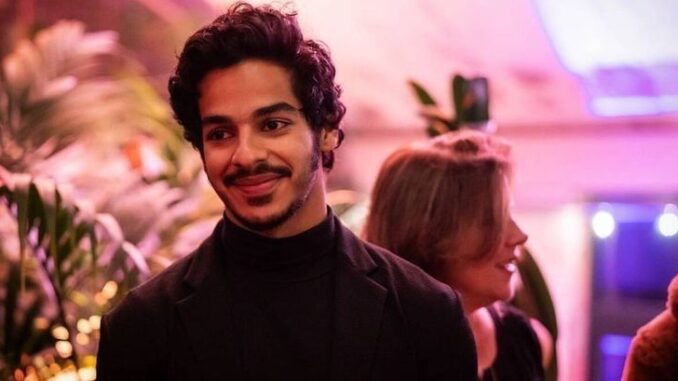
In the wake of a horrific terror attack in Pahalgam, actor Ishaan Khatter has spoken out, appealing for peace, unity, and compassion during this deeply painful time for the nation. The tragedy, which claimed the lives of 26 people — including several tourists — took place at Baisaran, a scenic location in South Kashmir often dubbed “Mini Switzerland” for its lush meadows and pristine views.
Ishaan, who had recently spent time in Pahalgam, took to social media to share his personal grief and call for national solidarity. Just two months prior to the incident, he had been in the region filming the music video for the romantic track Pyaar Aata Hai, alongside actress Tara Sutaria. That experience, he recalled, left him with warm memories of the landscape and, more importantly, the people.
“On a personal note, I was in Pahalgam barely two months ago,” he wrote in an emotional Instagram post. “I’ve always felt a strong sense of love and connection with Kashmir. The people I met there were generous, open-hearted, and deeply kind. It breaks my heart to imagine the pain and trauma the victims and their families are enduring right now.”
The young actor’s words carried a strong undertone of empathy and awareness, highlighting not only his sorrow but also the wider impact such incidents have on the community.
Further reflecting on the broader implications of the violence, Ishaan added, “Let us remember that Kashmir, despite its beauty, has suffered greatly for decades. The violence, the uncertainty, the political unrest — they have left wounds that are far from healed. What happened in Pahalgam is not just an attack on a place; it is a blow to humanity. In times like these, we must be tested not by our religious beliefs or political ideologies, but by our shared humanity.”
The deadly attack, which occurred on April 22, is considered one of the most severe assaults in the region since the 2019 Pulwama tragedy. According to officials, heavily armed terrorists opened fire on civilians and tourists at Baisaran, leaving behind a trail of devastation. The attack has reignited conversations around national security, the safety of civilians in conflict zones, and the fragile peace in Kashmir.
In response to the brutal assault, the Indian government has moved swiftly with a series of diplomatic and strategic actions aimed at holding Pakistan accountable. Accusing Pakistan-based terror groups of orchestrating the violence, India has announced a suspension of the Indus Waters Treaty, a significant agreement that governs the sharing of river waters between the two nations. Additionally, diplomatic relations have been further downgraded.
A more drastic step was announced on Thursday when the Indian government declared that all visas issued to Pakistani nationals will be revoked from April 27 onward. In a strong advisory, Indian citizens currently residing in Pakistan have also been urged to return home as soon as possible due to rising tensions between the two countries.
The developments mark a sharp escalation in Indo-Pak relations, reminiscent of the heightened hostilities that followed previous attacks.
As the country mourns and security forces intensify their search for those responsible, voices like Ishaan Khatter’s serve as a sobering reminder that beyond the politics and policies, it is human lives that bear the brunt of such tragedies. His message, urging unity and empathy in the face of violence, resonates deeply at a time when divisions — whether ideological, religious, or geopolitical — threaten to overshadow the common bonds that connect people.
For Ishaan, and many others who have experienced the warmth of Kashmir and its people firsthand, the attack feels personal. “We cannot let hatred divide us,” he concluded. “In times of darkness, it’s our humanity that must shine the brightest.”
